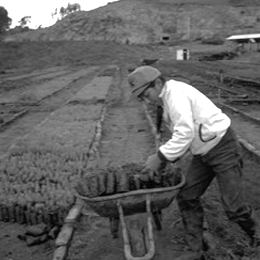Latin America News - Conservation
From Akvopedia
| August 17, 2015 Latin America Should Lead in Protecting the Planet’s Oceans Latin America should assume a position of global leadership by adopting effective measures to protect the oceans, which are threatened by illegal fishing, the impacts of climate change, and pollution caused by acidification and plastic waste. | |
| August 3, 2015 First Person: How 11 Ecuadorian Cities Pooled Their Resources To Support Their Watershed Six years ago, southern Ecuador’s Regional Water Fund (FORAGUA) began to pool the resources of several municipalities to ensure safe and steady water supplies through sustainable watershed management. In so doing, they created a template for other small cities across the Andes, but that doesn’t mean the work is easy; as Nature and Culture International found when it spearheaded the effort. Here’s what they learned. | |
| July 13, 2015 Latin America Has Uneven Record on Environmental Sustainability Millions of Latin Americans have better access to clean water and decent housing than 25 years ago. But the region still faces serious environmental challenges, such as deforestation and greenhouse gas emissions – a legacy of the model of development followed in the 20th century. | |
| June 8, 2015 In Northern Haiti, Conservation Efforts Focus on Coastlines Only little fish are pulled from the coastal waters off Haiti. In this overfished area of northern Haiti, fishermen who want a catch big enough for a meal say they must travel three hours in a boat to the Dominican Republic, where they scour the reefs of a national park and risk arrest, beatings or even death. | |
| January 12, 2015 Water in Mexico City: Artificial Scarcity Tenochtitlán is now Mexico City; one of the largest, most chaotic, amazing cities on Earth, but with 24 million inhabitants it is also one of the thirstiest cities in the world. Water scarcity and flooding are recurrent problems in the city, this causes low quality water, diseases and despair. Overexploitation of the Valle de México aquifer, generated the need of bringing water from Cutzamala river, located 130 km away from the city. The water has to be transported and distributed through a very old, rusty and complex pipe system. At the same time, the rainfall accumulates in the concrete surface of Mexico City causing devastation on its way to be mixed with the wastewater and drained to Hidalgo. |

